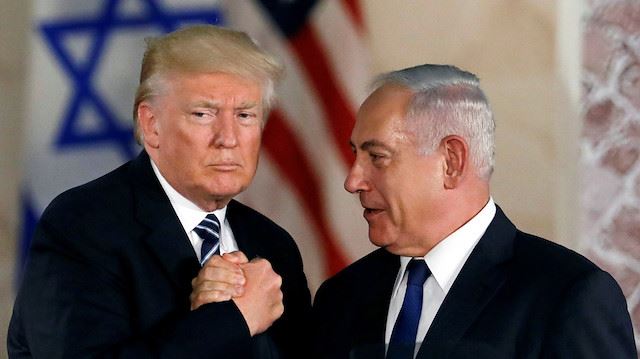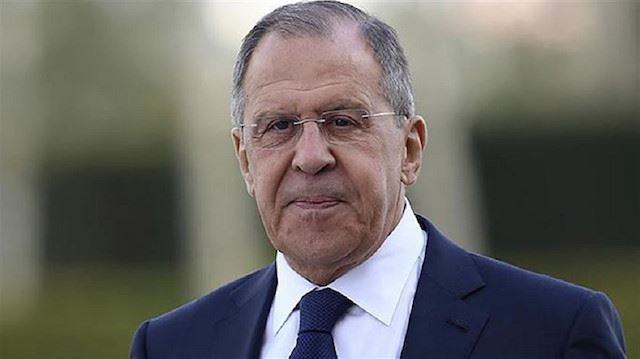A summit Tuesday between the presidents of Turkey and Russia on a Syrian safe zone is expected to be positive, said a former White House security expe
A summit Tuesday between the presidents of Turkey and Russia on a Syrian safe zone is expected to be positive, said a former White House security expert.
Turkish President Recep Tayyip Erdoğan is meeting his Russian counterpart Vladimir Putin in Sochi today to discuss the latest developments and the future of northern Syria.
Matthew Bryza, a senior fellow at the Atlantic Council and former director on the National Security Council staff in the George W. Bush administration during 9/11, told Anadolu Agency on Monday that Russia will not stop Turkey’s military operation against the YPG/PKK terror group.
Turkey launched Operation Peace Spring on Oct. 9 to eliminate terrorists from northern Syria in order to secure Turkey’s borders, aid in the safe return of Syrian refugees and ensure Syria’s territorial integrity.
“What I expect is it will be a positive outcome, that President Putin will continue folding YPG units into Russian and Syrian military units and move YPG operatives, soon to be former YPG operatives, out of the safe zone. Because if he were not to do that, I think, A) Russia looks like a diplomatic weakling, which is the opposite of what Putin wants, and B), if things get too out of hand between Turkey and the YPG, that’s, that’s not good for Russia or for us either,” he said.
“But, and also, I think President Putin is going to try to use his help in the safe zone to leverage more help by Turkey in Idlib against the militias that Russia doesn’t like. But that said, I do think that from time to time, Russia might allow a few YPG fighters to trickle back in, keep things tense as they do in the South Caucasus, which is where I spent so much of my career,” he added.
On Oct. 17, Turkey agreed to pause the operation for 120 hours, expiring on Tuesday night, to allow the withdrawal of YPG/PKK terrorists from the planned safe zone.
Russia supports steps removing terror threat from Syria
Russia’s stance on Syria is reaching a situation with no illegal armed groups on the country’s territory, Russian Foreign Minister Sergey Lavrov said on Monday.”We have our position, which we openly promote, which we consider optimal in the current situation, which is to achieve a situation where all the structures of the Kurds on the Syrian territory will be firmly inscribed in the legal framework of the Syrian Arab Republic, in the Syrian constitution, and that there are no illegal armed groups on the territory of the Syrian Arab Republic, and no threat, originating from the territory of Syria to the Republic of Turkey, as well as to other states,” Lavrov said, speaking at a news conference in Moscow, following a meeting with his Bulgarian counterpart Ekaterina Zaharieva.According to the minister, a dialogue has to be established between the sides to achieve the goal in Syria.”… And, of course, a dialogue between Turkey and the Syrian Arab Republic is necessary, where we are also ready to play a supporting role and encourage such direct contacts. It is obvious that the dialogue between Ankara and Damascus should be based on the Adana agreement of 1998,” he said.Lavrov said amendment of the Adana agreement can also be possible, and it was up to the sides to decide whether the document needs to be revised.”This is the existing international legal framework, which has been confirmed by both sides recently, including in the context of current events. If the parties find it necessary and mutually acceptable to clarify or amend this agreement in any way, it will be their decision, and we will certainly accept and support it,” he said.Referring to a possibility of contacts between the Turkish and Syrian officials in Sochi on the sidelines of the presidential meeting, Lavrov said there were no such plans.Russia welcomes Turkey-US talksIn a separate statement, Presidential Aide Yury Ushakov said Russia is “positive” about the results of the talks between Turkish President Recep Tayyip Erdogan and U.S Vice President Michael Pence.”The Russian side is positive about the results of the talks between the Turkish leadership and the U.S. vice president. But tomorrow, as you know, 120 hours, these five days are already expiring, we will see how the situation will develop. Actually, this will be discussed by Russian and Turkish leaders at a meeting in Sochi,” he said.Second line of TurkStream will be completed in 2020Lavrov said his Bulgarian counterpart Ekaterina Zaharieva informed him about the beginning of construction of the second branch of the “TurkStream” gas pipeline.The relevant ceremony with the participation of Bulgarian prime minister and the Russian ambassador to Bulgaria was held today, according to the minister.”The partners stressed that the work, as planned, will be completed on time by 2020,” Lavrov said.
Anti-Turkey agenda dates back to 2003
With regards to the declining number of friends of Turkey in the U.S. Congress, think tanks and the media, Bryza said Turkey started to lose the support of those groups on March 1, 2003 when the Turkish Grand National Assembly did not allow the U.S. to use Turkish soil as one of its fronts to attack Saddam Hussein’s Iraq following the 9/11 terrorist attacks.
“To be honest, it was expected throughout the U.S. government, where I was working in fact, I was working at the White House at the time, including on Turkey, and I was the project manager of getting Turkey to say yes and the Grand National Assembly to our request to invade Iraq, through Turkey. And the failure to approve that vote came as a shock throughout the top levels of the then Bush administration,” he said.
“And it began a process of the U.S. Central Command (CENTCOM), resenting Turkey and thinking Turkey doesn’t behave like a real, quote-unquote, real NATO ally. In other words, there’s an expectation that if the U.S. says ‘Do it,’ then a good NATO ally is supposed to just do it rather than habits, its own national interests,” he added.
Bryza, who has chosen Turkey as home for seven years now, said the negative attitude in CENTCOM toward Turkey “grew and grew.”
“And officers who were more junior on March 1, 2003, are now senior officers running the show,” he said.
They speak a lot with reporters and are thought of as being the most credible voices on the ground, feeding kind of a steady flow of deeply negative news about Turkey, he added.
Bryza said the U.S. made a “ridiculous policy choice” by working with the YPG terror group in 2014 and, to make things worse, American soldiers established an “unprofessional emotional bond with this band of terrorists they were fighting with.”
Then in time, the relationship with the YPG became a policy when CENTCOM grew fond of the YPG rather than exercising a tactical and transactional alliance to fight against Daesh as was first announced, he added.
When asked if Turkey still has any friends in the Pentagon, he said an anti-Turkey attitude is prevalent in CENTCOM, but the European Command is “full of friends.”
“So Turkey has lots and lots of friends in the Pentagon,” Bryza stressed, while criticizing the “Faustian” U.S. deal to use one terrorist group against another.
Brett McGurk ‘unprofessional’
Asked whether Brett McGurk, the former U.S. envoy for the global coalition against Daesh, is overdoing his YPG serenade, Bryza said McGurk “grew way too emotional and unprofessional.”
“It is not either a diplomat or soldier’s job to become enamored with a partner as pursuing a common goal. Unless, of course, it’s the NATO alliance; that’s different. We are allies with Turkey. We are allies with Germany. We’re allies with the United Kingdom. And it’s natural that we should feel an emotional attachment because we share the same values,” he said.
Bryza emphasized that the U.S. doesn’t share any values with the YPG, the Syrian offshoot of the PKK.
In its more than 30-year terror campaign against Turkey, the PKK — listed as a terrorist organization by Turkey, the U.S. and the European Union — has been responsible for deaths of 40,000 people, including women, children and infants.
“They’re a Marxist-Leninist splinter group that uses terrorism as a tool,” he said.

Trump says Israel, Jordan sought some US troops in Syria
Israel and Jordan requested the U.S. to leave a residual force in Syria, President Donald Trump said Monday as American forces continue their withdrawal from the country.The president did not specify the exact location where the countries requested U.S. forces to remain, but said it is in southern Syria “near Jordan, and close to Israel.”The closest area forces remain is a garrison near at-Tanf in southeastern Syria near the Iraqi border.”That’s a totally different section. That’s a totally different mindset. So we have a small group there, and we secured the oil. Other than that, there’s no reason for it, in our opinion,” Trump said.Defense Secretary Mark Esper told reporters over the weekend that Trump has approved keeping “some forces” in at-Tanf. He did not specify how many troops that might entail.Trump has faced widespread backlash on Capitol Hill over his decision to remove U.S. troops from northern Syria. He defended the move, saying an agreement with Turkey to halt the hostilities “holding.””The Kurds are moving out to safer areas beyond the safe zone,” Trump said, referring to the YPG/PKK.Turkey on Oct. 9 launched Operation Peace Spring to eliminate terrorists from northeastern Syria in order to secure Turkey’s borders, aid in the safe return of Syrian refugees and ensure Syria’s territorial integrity.On Oct. 17, Turkey agreed to pause the operation for 120 hours to allow the withdrawal of YPG/PKK terrorists from the planned safe zone.Ankara wants to clear northern Syria east of the Euphrates River of the terrorist PKK and its Syrian offshoot, the YPG/PKK.In its more than 30-year terror campaign against Turkey, the PKK — listed as a terrorist organization by Turkey, the U.S. and the European Union — has been responsible for deaths of 40,000 people, including women, children and infants.
